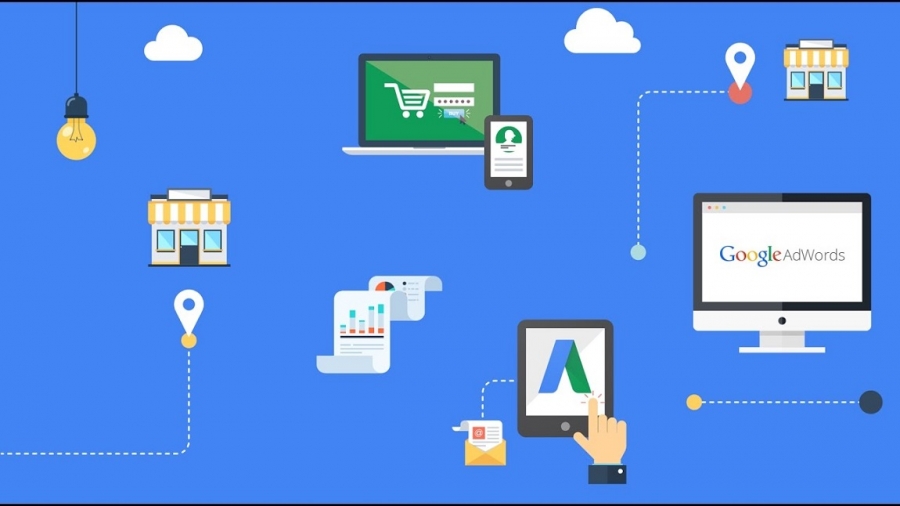Google Ads mistakes can significantly hinder campaign performance. With billions of users worldwide, businesses must optimize their strategies to maximize Google Ads’ potential.
Avoiding common mistakes when setting up ads ensures better results and more effective targeting.
This article highlights key Google Ads mistakes to steer clear of for better campaign management and success.
Why Companies Should Use Google Ads as a Primary Advertising Platform

Google Ads serves as a powerful platform enabling businesses to effectively reach a vast audience at a reasonable cost.
Whether your business is large or small, Google Ads can cater to your organization’s requirements. Its flexible budgeting system allows any company to enter the market and compete effectively.
Advantages of Using Google Ads

Google Ads provides several advantages for businesses:
- Reaching Potential Customers: With a variety of marketing tools, Google Ads helps businesses enhance their chances of connecting with potential customers seeking similar products and services. This includes visibility through YouTube videos and ads on Google search engine pages.
- Boosting Brand Recognition: Given the billions of daily searches, Google Ads serves as an effective avenue for clients and companies alike. Your company’s advertisements will prominently appear on search results pages, leaving a lasting impression and elevating brand recognition. Additionally, featuring on YouTube and partner websites contributes to strengthening the organization’s reputation and online visibility.
Top Google Ads Mistakes to Avoid for Effective Campaigns
Successfully running Google Ads entails more than just creating ads and allocating a substantial budget.
Many businesses make critical mistakes in ad optimization, leading to wasted resources and falling short of their ultimate advertising goals.
The following are some mistakes that businesses should avoid to effectively manage their Google Ads campaigns:
1. Choosing Inappropriate Keywords
Keywords play a crucial role in determining the success of an advertisement.
Selecting the right keywords enables businesses to address the specific problems their target audience is facing, making it easier to persuade people to use the services offered.
However, common mistakes in keyword selection can hinder this process:
- Choosing Too-Wide or Too-Narrow Keywords: This can make it challenging for businesses to reach the right clients. Striking a balance in keyword specificity is essential for effective targeting.
- Using Irrelevant Keywords: Opting for keywords unrelated to the organization’s advertising material may lead to wasted resources and an increased bounce rate. It is crucial to ensure that the selected keywords directly align with the company’s products or services.
To address these challenges, businesses should utilize a combination of keyword research tools to identify strategic keywords that are relevant to their target audience.
2. Not Optimizing the Landing Page

The landing page serves as the endpoint of advertising efforts. By optimizing landing pages, businesses can increase the likelihood that ad viewers will convert into customers. Common errors associated with creating a landing page include:
- Inappropriate Landing Page: Ads that do not direct users to the appropriate landing page can diminish the quality of the user experience.
- Lack of a Clear Call to Action: Landing pages must incorporate a clear call to action (CTA) to prompt customers to take the desired action, whether it’s making a purchase or providing contact information.
To enhance the effectiveness of your advertising, it’s crucial to optimize your business’s landing page, ensuring that it accurately reflects your advertising message and encourages desired actions from visitors.
3. Not Monitoring and Measuring Outcomes
The outcomes of advertising campaigns reflect overall performance. If a company’s advertising expenditures are not consistently tracked and evaluated for effectiveness, it risks being perceived as a “waste of money.” Regular assessment and review of key performance indicators are crucial.
This process helps businesses comprehend campaign performance based on real data and enables them to adjust strategies accordingly. Important performance indicators to monitor include click-through rate (CTR), cost-per-click (CPC), ad view rate, etc.
4. Not Optimizing the Advertising Budget
To achieve high productivity in advertising, businesses need more than just a substantial advertising budget—they also need to optimize it.
A low budget may hinder advertising performance, while an excessively high budget can lead to a waste of resources. It’s essential for businesses to regularly check and adjust their budgets based on specific business goals and industry competition.
This ensures that the allocated budget is effectively utilized to meet advertising objectives.
5. Not Optimized for Mobile Devices
In today’s digital landscape, the prevalence of mobile device usage is on the rise. Google places high importance on advertising websites that are compatible and mobile-friendly.
Therefore, for effective operation of Google Ads, businesses must optimize the mobile experience. This ensures that ads display seamlessly and conveniently across a variety of mobile devices.
FAQs
1. What benefits does Google Ads offer businesses?
Google Ads allows businesses to reach the right potential customers at the exact moment they’re searching for relevant information. The platform boosts brand visibility, improves conversion rates, and optimizes ad spend through precise performance tracking.
2. Why do businesses often make mistakes when running Google Ads campaigns?
Most mistakes happen because businesses don’t fully understand how Google Ads works, lack proper keyword research, fail to optimize their landing pages, or neglect ongoing campaign data monitoring.
These issues lead to wasted budgets and poor performance.
3. How can businesses choose the right keywords for Google Ads?
Businesses should choose keywords based on user search intent, competition levels, and product relevance. Mixing broad match, phrase match, and exact match helps expand reach while maintaining traffic quality.
4. Why is the landing page critical in Google Ads campaigns?
A landing page directly impacts quality score, conversion rates, and ad costs. A relevant, fast-loading page with a clear CTA encourages users to take action, helping maximize campaign effectiveness.
5. Which performance metrics should businesses monitor in Google Ads?
Key metrics include CPC, CTR, conversion rate, quality score, cost per conversion, and keyword relevance. Monitoring these indicators allows businesses to optimize campaigns using real-time performance data.
6. How should Google Ads budgets be optimized?
Budgets should be allocated based on business goals, market competition, and individual ad group performance. Flexible budget adjustments help maximize results while preventing unnecessary spending.
7. Do businesses need to optimize Google Ads for mobile devices?
Yes. Most users search on mobile devices, and Google prioritizes mobile-friendly ads. An optimized mobile landing page improves user experience, reduces bounce rates, and increases conversions.
8. How can Smartcom help businesses optimize Google Ads campaigns?
Smartcom delivers end-to-end Google Ads solutions, including keyword research, account optimization, campaign setup, continuous monitoring, and data-driven analysis.
The goal is to reduce costs, improve conversions, and ensure long-term performance.
Conlusion: Smartcom – Enhancing Google Ads Effectiveness and Cost Optimization
Effectively operating Google Ads can be time-consuming and impact a business’s budget. Smartcom, with its team of creative experts, delivers effective, attractive, and optimized campaigns to businesses.
Smartcom comprehends the challenges businesses face in optimizing Google Ads for the best results. Let Smartcom be your strategic partner, assisting businesses in optimizing advertising strategies to ensure every expense brings the highest value.
To contact and learn more about Smartcom’s advertising services, customers can leave information here, and we will be in touch shortly.





